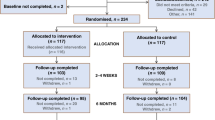Abstract
Population cancer awareness is of interest worldwide, as efforts are made to reduce cancer incidence via changes in risk and protective behaviours. To date, few studies have described changes in awareness over time, despite significant investment in raising awareness about various cancer types and risk behaviours. This paper describes the Cancer Awareness in Aotearoa New Zealand (CAANZ) survey, a cross-sectional telephone survey of adult New Zealanders conducted in 2014/2015 (CAANZ15, n = 1064) and its comparison with a similar 2001 study (CAANZ01, n = 438). Both aimed to describe current cancer awareness among a national sample of New Zealand (NZ) adults, with additional aims for CAANZ15 being to explore emerging issues in information provision and supportive care. Follow-up studies are challenged by changes in communication technologies and, in turn, potential issues in sampling. However, given the value of information about changing awareness, pragmatic steps were taken in CAANZ15 to maximise the response rate and comparability of the surveys. A response rate of 64 % was achieved for both samples. When compared to the adult NZ population, the CAANZ15 sample tended to be older, of higher socioeconomic status and under-representative of people with Pacific, Asian or, to a lesser extent, Māori (the indigenous population of NZ) ethnicity. To compensate for possible disproportionate age-by-ethnicity (Māori/non-Māori) groups in the sample, poststratification weighting was adopted. While caution will need to be exercised in drawing conclusions from comparisons made between these two cohorts, the dearth of such studies means that insights gained should be useful for guiding reflection on future cancer control directions and the generation of new hypotheses.
Similar content being viewed by others
References
Hill D, Wakefield M (2014) Designing and evaluating population-wide campaigns. In: Stewart BW, Wild CP (eds) World cancer report 2014. International Agency for Research on Cancer, Lyon, pp 290–297
Cho J et al (2013) Public attitudes toward cancer and cancer patients: a national survey in Korea. Psychooncology 22:605–613
Hawkins NA, Berkowitz Z, Peipins LA (2010) What does the public know about preventing cancer? Results from the Health Information National Trends Survey (HINTS). Health Educ Behav 37:490–503
Khayyat YM, Ibrahim EM (2014) Public awareness of colon cancer screening among the general population: a study from the Western Region of Saudi Arabia. Qatar Med J 2014:17–24
Hvidberg L et al (2014) Cancer awareness and socio-economic position: results from a population-based study in Denmark. BMC Cancer 14:581
El Rhazi K et al (2014) Public awareness of cancer risk factors in the Moroccan population: a population-based cross-sectional study. BMC Cancer 14:695
Al-Naggar RA, Bobryshev YV, Osman MT (2013) Knowledge of colorectal cancer and associated factors among the general population in Malaysian. World J Med Sci 8:135–143
Low EL et al (2012) What do British women know about cervical cancer symptoms and risk factors? Eur J Cancer 48:3001–3008
Reeder AI, Trevena JA (2003) Adults’ perceptions of the causes and primary prevention of common fatal cancers in New Zealand. N Z Med J 116:U600
Trevena J, Reeder AI (2007) Perceptions of New Zealand adults about reducing their risk of getting cancer. N Z Med J 120:34–43
Dillman D, Smyth J, Christian LM (2014) Internet, phone, mail and mixed-mode surveys: the tailored design method, 4th edn
Statistics New Zealand. [http://www.stats.govt.nz/Census/2013-census/profile-and-summary-reports/ethnic-profiles.aspx?request_value=24705&tabname=Age,sex,andethnicities].
StataCorp (2015) Stata 13 survey data reference manual. Stata Press, College Station
StataCorp (2013) Stata statistical software: release 13. StataCorp LP, College Station
Phoenix Research (2009) Community perceptions survey. Public opinions about cancer, early detection and screeening. Report prepared for Cancer Society of NZ. p. 1–80.
Acknowledgments
The Cancer Society Social and Behavioural Research Unit received support from the Cancer Society of New Zealand and the University of Otago. Ms Robertson is supported by a stipend from Lottery Health NZ. The authors would like to acknowledge the work of our team of interviewers and to thank the participants for their time and willingness to share their thoughts and perspectives.
Author information
Authors and Affiliations
Corresponding author
Ethics declarations
Ethical approval for CAANZ01 and CAANZ15 was obtained from the University of Otago Ethics Committee (Reference number 00/03/10) and the Department of Preventive and Social Medicine Ethics Committee (Reference number D14/369), respectively.
Conflict of Interest
The Cancer Society Social and Behavioural Research Unit received support from the Cancer Society of New Zealand.
Rights and permissions
About this article
Cite this article
Richards, R., McNoe, B., Iosua, E. et al. Cancer Awareness in Aotearoa New Zealand (CAANZ), 2001 and 2015: Study Protocols. J Canc Educ 32, 745–748 (2017). https://doi.org/10.1007/s13187-016-1050-1
Published:
Issue Date:
DOI: https://doi.org/10.1007/s13187-016-1050-1




